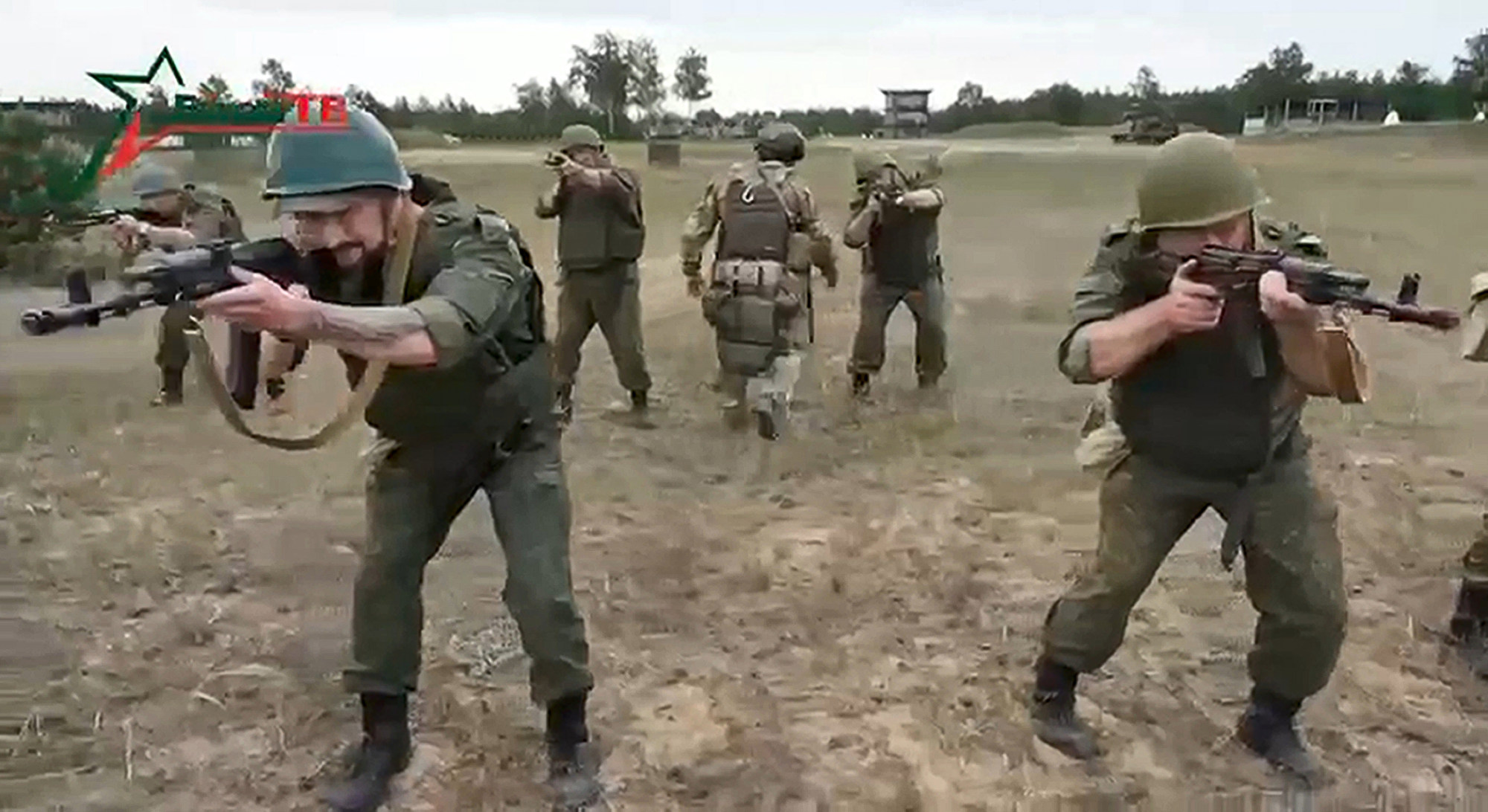
Yevgeny Prigozhin welcomes Wagner troops to Belarus, says they’re out of Ukraine war for now
- The unverified footage is the first video evidence of the Russia mercenary chief’s whereabouts since his failed mutiny
- Prigozhin ordered his fighters to train the Belarus army and to gather their strength for ‘a new journey to Africa’
Russia’s mutinous mercenary chief Yevgeny Prigozhin was shown in a video on Wednesday welcoming his fighters to Belarus, telling them they would take no further part in the Ukraine war for now but ordering them to gather their strength for Africa.
Wagner’s failed June 23-24 mutiny has been interpreted by the West as a challenge to President Vladimir Putin’s rule that illustrates the weakness of the 70-year-old Kremlin chief and the strain of the Ukraine war on the Russian state.
The footage, reposted by his press service on Telegram, is the first video evidence of Prigozhin’s whereabouts since the night of the mutiny.
In the video, the authenticity of which Reuters could not immediately verify, a man whose voice and Russian sounded like Prigozhin’s, is heard welcoming his men. The video was reposted by his press service on Telegram.

“Welcome lads … Welcome to Belarusian soil,” Prigozhin said.
“We fought honourably,” he added. “You have done a great deal for Russia. What is going on at the front is a disgrace that we do not need to get involved in.”
Putin initially said he would crush the mutiny, comparing it to the wartime turmoil that ushered in the revolutions of 1917, but hours later a deal was clinched to allow Prigozhin and some of his fighters to go to Belarus.
Since Prigozhin was last seen leaving the Russian city of Rostov on June 24, mystery has surrounded his fate after he was cast as a traitor by Putin. It is also unclear what Wagner, which Prigozhin said had 25,000 men, would do next.
Biden jokes about Prigozhin poisoning, says Putin ‘already lost’ Ukraine war
The video was shot after night had fallen, though it was possible to discern what looked like Prigozhin’s profile and a group of men.
Since a deal was struck to end the mutiny, the Kremlin has sought to project calm, with Putin chairing a variety of meetings, meeting crowds in Dagestan and even discussing quantum computing and artificial intelligence.
Russian officials dismiss Western interpretations of the mutiny and say the West should not concern itself with such “scrapes”.
The video posted on Wednesday showed Prigozhin receiving a Wagner black flag, decorated with the motto “Blood, Honour, Motherland, Courage”, from their camp in southern Russia.
Belarus said last week that Wagner fighters were instructing its soldiers at a military range southeast of Minsk.
Prigozhin says in the video that his men should behave well towards the locals and orders them to train the Belarusian army and gather their strength for a “new journey to Africa”.
“And perhaps we will return to the SMO [special military operation in Ukraine] at some point, when we are sure that we will not be forced to shame ourselves,” Prigozhin said.
Wagner was founded by Prigozhin and Dmitry Utkin, a former special forces officer in Russia’s GRU military intelligence, as a way for Russia to get involved in wars in countries including Syria, Libya and Mali with full deniability.
Wagner rescued Chinese gold miners in Africa in July: paramilitary group
Wagner helped Russia annex Crimea in 2014, fought Islamic State militants in Syria, operated in the Central African Republic and Mali and took the Ukrainian city of Bakhmut for Russia earlier this year with considerable losses on both sides.
Prigozhin had said his mutiny was not aimed at toppling Putin but at settling scores with Defence Minister Sergei Shoigu and Chief of the General Staff Valery Gerasimov.
After Prigozhin’s speech, a man identified as Utkin then spoke to the men.
“This is not the end. This is just the beginning of the biggest work in the world that will be carried out very soon,” Utkin said in Russian. He then switched to English: “And welcome to hell!”


